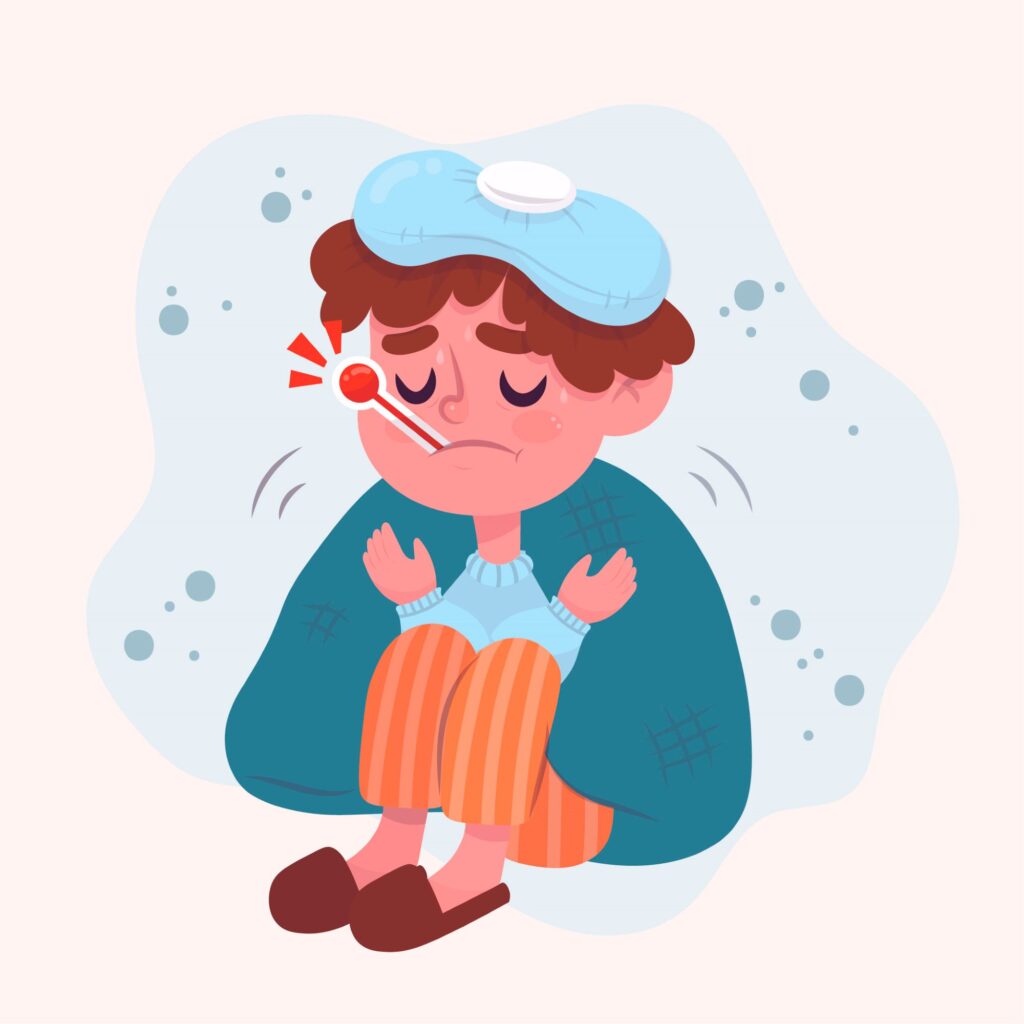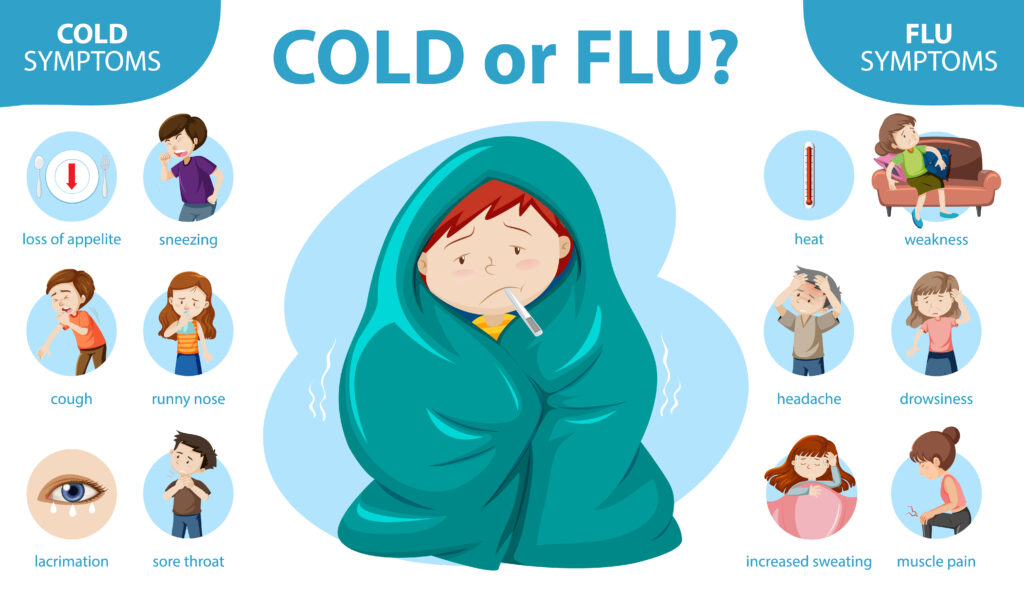“Put your jacket on or else you’ll get the flu”, “stay off air streams or else you’ll get a cold”, do you remember your parents ever saying that to you as a kid? I do! Or how about now, after what we went through with covid, being paranoid of every sneeze and cough you hear? I am! Have you noticed that for the past month almost everyone around you is sick every other day and it doesn’t seem to go away? Well, it’s not a new bug, it’s just the winter season (and.. a little bit of lack of precaution, our bodies forgetting how to fight more common illnesses and back-to-back infections).
Some respiratory illnesses actually are more common during the winter but it is not because of the weather itself but because we spend more time indoors and with closed windows, which allows bacteria and viruses to pass easily from person to person. Also, if you already have a virus, lower body temperature makes it harder for you to fight it.
Some of these common illnesses during colder months are whooping cough, pneumonia, bronchitis (acute and chronic), respiratory syncytial virus (RSV), flu and common cold. Most of them have the same symptoms at the beginning, so what you have to check out for is how it develops and if you start to experience more severe symptoms.
Now, symptoms that go away and then reappear could be part of the same viral infection, so that mixed with a cold environment, could make it seem like several respiratory infections immediately one after the other, but it’s really just one that seems to never end.
Here’s a quick guide for you to distinguish between the different types of illnesses and their key symptoms:
| Illness | Key symptoms |
| Whooping cough Starts as common cold | Coughing spells that end with a whooping sound Watery eyes mixed with runny nose and sneezing |
| Pneumonia | Stabbing chest pain Cough with mucus Accelerated breathing and pulse Shortness of breath |
| Bronchitis | Acute: Non-stop coughing Headache Wheezing Sore throat Chronic: Persistent cough Chest discomfort Difficulty breathing |
| Respiratory Syncytial Virus (RSV) Most likely on children, older people, people with heart, lung or immune system problems | Decreased appetite Low fever Similar to a cold |
| Flu | Exhaustion High fever Body ache Sore throat Vomit or diarrhea |
| Common cold | Scratchy throat Low fever Chills and aches Runny nose |
For a complete list of symptoms, how we get each illness, how long it should last and when it is safe to get back to our workplaces/schools/social gatherings etc., read here.
Should we bring back masks and stay home when feeling sick?
By the beginning of last year almost everyone stopped wearing masks and forgot to take precautions in case of running into sick people, but we should reconsider bringing masks back since respiratory illnesses can become much worse in a matter of days during winter time. Wearing a mask not only prevents us from spreading viruses, it also stops chilly air from getting through our nose and lungs.
Having respiratory issues is really a nightmare: you don’t sleep very well or don’t sleep at all, you can’t breathe correctly, sore throat makes it so painful to even pass food and saliva and we feel too tired to even take care of ourselves. We all know that feeling. Add to the fact that it can take 15 days to clear a common cold, and 25 days for a cough to go away in most cases. Adults can also have what doctors call a post-viral cough that can last for three weeks or more after other symptoms disappear. Knowing this, I think we can all agree that we should be more cautious and avoid spending up to a month sick, even if we won’t be contagious after the first week of symptoms.
Lastly, if it is within your possibilities, make sure you are up to date on covid and flu shots. Influenza vaccination campaigns usually take place in October or November since it is best to get vaccinated before the influenza season starts.
Category: Health, Lyfestyle, Mental Health, Physical Health
Tags: cold, flu, masks, respiratory diseases, RSV, viruses, winter

